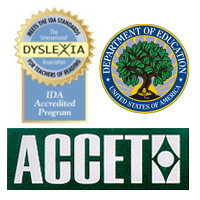What is NILD Educational Therapy ®
The goal of NILD (National Institute for Learning Development) Educational Therapy ® is to help students develop tools for independent learning in the classroom and in life. Our methods were developed over 40 years ago and have worked to transform over 100,000 students worldwide.
At NILD Zimbabwe, we aim to provide training to teachers and therapists in order to help “students that learn differently” by offering specialist courses and workshops to teachers working in schools and privately. NILD Zimbabwe have been training teachers since 2012.
NILD is endorsed and accredited by leading experts and organisations in the field of education, and our methods are praised by parents, students and teachers who have seen lasting results.

“Helping those who learn differently”
Parent Testimonials
“We highly recommend NILD therapy and are very grateful to Lorna McCosh for her commitment to assisting children with learning disabilities and to the NILD progamme.” – Bridget
“I would highly recommend NILD therapy, as it helped my daughter tremendously! After one term of therapy her confidence had really increased and from there she just seemed to do better all the time! I am very grateful to Nina for the time, patience and effort she put in, in person as well as via Google meets (even when internet connections were not very great!).” – Mrs Manuel, Estelle
“I can honestly say that lessons learnt from NILD are for life. She has really appreciated the concept and uses it every day. At the school prize giving, 2 years after our graduation from NILD, she was awarded the ‘English’ prize, even though she is dyslexic. Much gratitude to NILD and those teaching it. Needless to say I have recommended it to many people and would do so in a heartbeat.” – Michelle
“My son has been attending extra lessons/remedial sessions since he was in Grade 2 and has struggled academically through his school career. He has continually found it difficult to understand what he is reading and to comprehend the questions asked. In the 3rd term of Form 3 he began his NILD programme. His reading age has since improved by 8 years after 6 terms of NILD. He is so happy to be able to read and understand. His English teacher cannot believe his progress in terms of reading, writing and understanding topics. I highly recommend NILD to any dyslexic child. My son has had huge encouragement and support by his amazing NILD tutor, Lorna McCosh.” – Mrs S.
Student Reviews
“When I found out about NILD and knew it could help me I thought I’d give it a try, and little did I know it would change my life and actually make me want to succeed at school. I highly recommend NILD for changing my life and helping me so much and thank you Lorna”. – Ben, Form 4
“I have been doing NILD for almost one year and I have improved so much! At first I hated NILD and now I like it as it is fun and helps me a lot. I never used to read for fun because I could not, but now I do every night and I have finished two books in one week. NILD is great!” – Neha, Grade 7
“NILD is a very helpful and enjoyable way to help people with learning disabilities like dyslexia, and for me NILD has helped me get better at spelling and reading which I used to be horrible at! I have done NILD for two and a half years and I have found it fun and I have seen my spelling, reading, writing and math improve over this time. NILD is a great thing for people with learning disabilities, in my opinion, to help them improve.” – Daniel, Form 2

What is an educational therapist?
- An NILD educational therapist is a highly-trained individual who works with struggling learners in a one-on-one or group therapy setting.
- Educational therapists are specifically equipped with the ability to identify and assess student learning needs.
- They create and implement individual educational therapy plans utilising the NILD techniques specific to the learning goals for each student.
- Therapists are passionate, skilled, relational, and empathetic.
- They are individuals who want to be a part of unlocking learning potential for their students through an individualised, therapeutic approach.
- Educational therapists must first have a Bachelor’s degree, preferably in education or a related field. They then receive post-graduate training in educational therapy.
WHY BECOME AN NILD EDUCATIONAL THERAPIST?
Our therapists are trained through rigorous, graduate-level courses. They are mentored, participate in professional development, and complete a certification process. They are skilled professionals involved in an intervention with a long history of success!
Training educators – Developing minds – Changing lives.

BECOME A PROFESSIONALLY CERTIFIED NILD EDUCATIONAL THERAPIST
- Learn how to unlock student potential through an individualised, therapeutic approach.
- Attend our research-based, graduate-level training courses to become an NILD Educational Therapist.
- NILD is always seeking to train more therapists to meet the high demand for educational therapy in schools and private practices in Zimbabwe.

NILD Partnership Schools
NILD is represented in many of our private schools – look for the NILD partnership plaque in schools working in partnership with NILD
“helping those who learn differently”.
- Hellenic Primary School
- Springvale House
- Sharon School
- Lilfordia School
- Peterhouse Girls
- Peterhouse Boys

“I honestly think it is the most incredible and rewarding programme, for both the student and the therapist.
Every session gives me a sense of accomplishment and I feel like I am making a real difference to the lives of my students. I hope that you will consider doing the course. It really has been life changing for me and I can’t recommend it highly enough.”
Nicola Savo – Head of Learning Support – Hellenic Primary School

Who is a Candidate for NILD?
Potential students for NILD Educational Therapy® are those experiencing obvious frustration in areas of school performance.
Poor spelling, illegible handwriting, inability to express thoughts verbally or in writing, and difficulty with reading and math are common indicators of a learning disability.
Learning disabilities are diagnosed through a battery of tests that measure and compare students’ potential with their actual performance.
A student is required to have an initial assessment by an educational psychologist before entering NILD Educational Therapy® or if you suspect your child is dyslexic, contact nildinzimbabwe@gmail.com for details of dyslexic testing. This assists in tailoring a student’s NILD sessions to his/her specific needs. The educational therapist also administers a series of tests to gain a deeper understanding of each student’s learning strengths and challenges.

SEARCH & TEACH®
“An ounce of prevention is worth a pound of cure”
Benjamin Franklin

Children who are lagging behind in this area will struggle to become proficient readers.
SEARCH & TEACH® is a 30 minute screening instrument for children from nursery school, Grades One and Two (60-80 months). SEARCH & TEACH’s strength as an early intervention programme lies in identifying children with perceptual immaturities. Those skills have been found to be a prerequisite for academic learning.
Children who are lagging behind in this area will struggle to become proficient readers.
“The strength of SEARCH & TEACH® is in early intervention. This twofold approach offers educators an effective tool for catching learning disorders at the beginning of a child’s academic career, before the downward spiral of failure begins. With proper and timely identification and intervention, many children can be spared the lifelong consequences of learning disorders.”
Rosa A. Hagin, Ph.D
(Psychologist and developer of the SEARCH & TEACH® programme)
NILD Zimbabwe introduced SEARCH & TEACH® to Zimbabwean nursery and primary schools in 2011. SEARCH & TEACH® is offered by a number of schools and nursery schools in Zimbabwe, who work in partnership with NILD to help young children with perceptual weaknesses.

